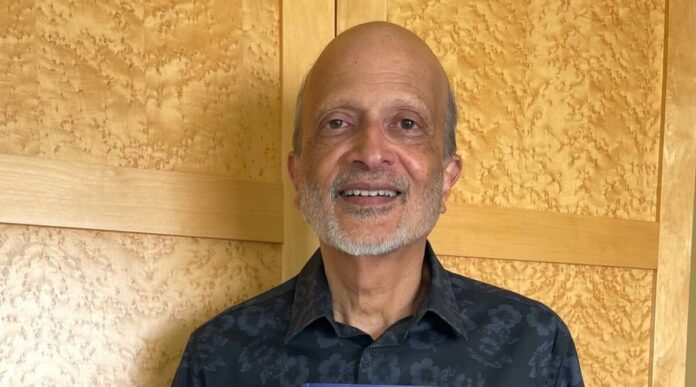“Investors in the US were monitoring the situation in the country and as a result, the flow of money into startups in India had slowed dramatically in the past 12 to 18 months.”
— M R Rangaswami, Eminent Indian-American Entrepreneur
Eminent Indian-American entrepreneur M R Rangaswami has said that in the past three-four years, a lot of Indians who were living in the US and other countries, as well as, Indian venture capitalists and others invested heavily in India, reported Livemint.
That, however, is over now. Those unicorns now face challenging times with the recession: they are being funded at very high valuations.
“So, the market in India is correcting right now with these unicorns where some of them will disappear, some will merge, and others will have a challenging time getting to the next level where they can either have an exit or go public,” Rangaswami said.
He said investors in the US were monitoring the situation in the country and as a result, the flow of money into startups in India had slowed dramatically in the past 12 to 18 months.
Speaking about the Indian startup ecosystem, Rangaswami said, “There are some vestiges of old rules and regulations that need to be changed in India.”
According to the Indian-American entrepreneur, there are issues with the Angel Tax in India; issues dealing with incorporation and moving companies from India to the US require a lot of work; and companies coming back from the US to India require a lot of work. Such rules, he said, needed amendments to facilitate the easy movement of money and companies between India and the US.
“People come to Silicon Valley, we are sitting here in San Francisco, people come here because of the craziest of entrepreneurs. The venture investors here also invest in those crazy ideas. The US market lets those companies kind of unfold and work out. For example, here in San Francisco, we have driverless cars running around the entire city.”
— Rangaswami
Rangaswamy added that he had not seen any breakthrough technologies in India. “Some of them tend to be copycat deals. They look like a US company, but working in an Indian model. Some tend to be add-ons and functional improvements to the software. But in terms of breakthrough technologies, we have not seen too many companies in India come out with that type of product or solution at this point,” he said.
Rangaswami said that successful Indian startup were moving to Silicon Valley to take a pie of the American market. Around 300-400 highly successful Indian startups had moved to the US. “This is a recent phenomenon, that’s happened in the past, three-four years when there is a lot of enterprise software as a service SaaS companies that were started in India, using Indian talent, Indian founders, but the customers happen to be in the US since US is the biggest IT market,” explained Rangaswami
Rangaswami is the founder of Indianspora. He said, “We are trying to see if these people need mentorship, can we mentor them? Can we advise them? Can we help them get funding? So, this is something that the Indiaspora group is figuring out at this point because a lot of our members here in the US are the leading VCs who have invested in these companies and these CEOs have come here.”
Rangaswami said, “People come to Silicon Valley, we are sitting here in San Francisco, people come here because of the craziest of entrepreneurs. The venture investors here also invest in those crazy ideas. The US market lets those companies kind of unfold and work out. For example, here in San Francisco, we have driverless cars running around the entire city.”
Calling the environment the biggest reason for innovation disruption, he said, “I’m not suggesting India become like the US, but in its own way, I think it’s improving and you’ll get its own kinds of innovation.”
*****************************************************
Readers
These are extraordinary times. All of us have to rely on high-impact, trustworthy journalism. And this is especially true of the Indian Diaspora. Members of the Indian community overseas cannot be fed with inaccurate news.
Pravasi Samwad is a venture that has no shareholders. It is the result of an impassioned initiative of a handful of Indian journalists spread around the world. We have taken the small step forward with the pledge to provide news with accuracy, free from political and commercial influence. Our aim is to keep you, our readers, informed about developments at ‘home’ and across the world that affect you.
Please help us to keep our journalism independent and free.
In these difficult times, to run a news website requires finances. While every contribution, big or small, will makes a difference, we request our readers to put us in touch with advertisers worldwide. It will be a great help.
For more information: pravasisamwad00@gmail.com



